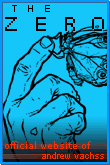Daniel Greenfield talks of two different types of societies, the Production society and the Rationing society. It's worth reading in full, as are all of Greenfield's essays. You follow him, right?
We have become a rationing society. Our industries and our people are literally starving in the midst of plenty. Farmers are kept from farming, factories are kept from producing and businessmen are kept from creating new companies and jobs. This is done in the name of a variety of moral arguments, ranging from caring for the less fortunate to saving the planet. But rhetoric is only the lubricant of power. The real goal of power is always power. Consolidating production allows for total control through the moral argument of rationing, whether through resource redistribution or cap and trade.
In a production society, the role of government is to expand the territories of exploitation and to protect those territories. In a rationing society, the role of government is to control the available quantities of production with a view to distributing them fairly. Naturally, the rationers, as always, get the best rations. In a production society, government is a means of protecting everyone's ability to produce. In a rationing society, government prevents the bigger from grabbing the rations of the smaller and protects everyone from grabbing all the rations at once and starving to death.
The sort of society we have is fit for passengers adrift at sea on a lifeboat parceling out their last crackers. It is an emergency society for the lost and the starving. And perversely we are starving amidst plenty.
The rationing society discourages people from farming and encourages them to peer in each other's mouths to see who is eating more than his fair share. In the rationing society everyone is certain that they are not getting their fair share and eager to sign on to initiatives to get their group's fair share. In a rationing society everyone is an informer because everyone's livelihood depends on informing on others.
That should give you a good taste of Greenfield's thesis. Now go and read the rest.
Sunday, September 21, 2014
Subscribe to:
Post Comments (Atom)








No comments:
Post a Comment